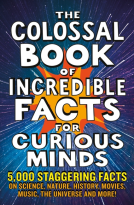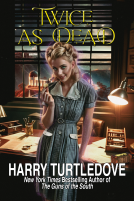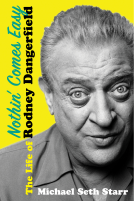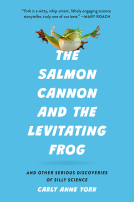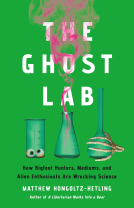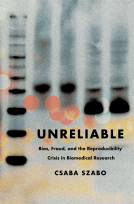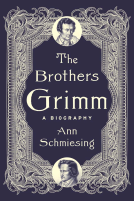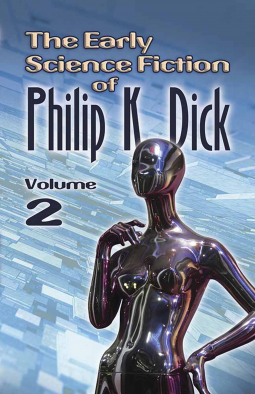
The Early Science Fiction of Philip K. Dick, Volume 2
by Philip K. Dick
This title was previously available on NetGalley and is now archived.
Send NetGalley books directly to your Kindle or Kindle app
1
To read on a Kindle or Kindle app, please add kindle@netgalley.com as an approved email address to receive files in your Amazon account. Click here for step-by-step instructions.
2
Also find your Kindle email address within your Amazon account, and enter it here.
Pub Date Feb 17 2016 | Archive Date Apr 13 2016
Description
Riveting tales include a satire of the 1950s obsession with bomb shelters, "Foster, You're Dead," which skewers both consumerism and Cold War anxiety; "Prominent Author," concerning a crack in the space/time continuum that allows an ordinary man to achieve a lasting literary legacy; "Upon the Dull Earth," in which a girl begins by conjuring up angelic-seeming creatures and ends by transforming the nature of reality; and "Adjustment Team," the inspiration for the film The Adjustment Bureau. Additional selections include "Human Is," "Progeny," "Meddler," "The Turning Wheel," "Shell Game," "Exhibit Piece," and "Small Town."
Available Editions
| EDITION | Paperback |
| ISBN | 9780486801506 |
| PRICE | $9.95 (USD) |
Featured Reviews
 Reviewer 307074
Reviewer 307074
Thank you very much for this book - it proves that reading is still a worth-wile way of passing the time.
5 stars Second volume of short stories by an incredible writer: A must-read for genre fans
This book review will echo the sentiments of my review of the earlier compilation of PK Dick stories. This latest collection of stories is as good as the first one and confirms to me how great a writer PK Dick was. My one regret is discovering him so late. The stories in this volume date from 1954-1955. I even better now understand why Dick is such an icon in the science fiction world. The stories are timeless and this collection is a must read.
 Reviewer 230681
Reviewer 230681
In case you don’t know of him, Philip K. Dick was a prolific science fiction writer, whose career started in the 1950s and continued to his death in 1982. He was never able to achieve financial success as a writer, and starting in the 1970s suffered from mental illness and drug abuse. His body of work has actually become better known in recent decades than during his lifetime; his fame fueled by recent films based on his work – Blade Runner, Total Recall, Minority Report, The Adjustment Bureau, etc. Dover Publications' collection “The Early Science Fiction of Philip K. Dick” included some of his earliest stories, from 1952-1954. This is the second volume of his early stories, these entirely from 1954 and 1955.
I have read a good number of Philip K. Dick’s novels and stories, most of them during a time when he was still alive. I found a few of them to be great, like The Man in the High Castle, but most seemed mediocre, and now it is a little strange to hear my adult children venerating him. I was born the year these stories were written, had not read them before, and so was curious. Like much of the short science fiction of the 1950s, they appeared in the pulp magazines like Amazing Stories, Galaxy, and Orbit. The formula of the time was to start from a speculative concept, the weirder or more unexpected the better, and then to craft a simple story around it – exposing the concept in its full by the end. These stories conform to that formula, but with an emphasis on the nature of reality. Not just a character’s personal reality, but of the universe itself. The writing style can get turbid, with phrases such as "and after an interminable time of suffering, he would die." – but the ideas are fresh. These existential surprises continue to capture the imagination of readers (or film viewers) today, even when the Eisenhoweresque settings seem distant.
Here’s a capsule summary of each of the 11 short stories and novellas contained in Volume 2:
"Prominent Author", Worlds of Science Fiction, May 1954.
A businessman commutes to work through a consumer wormhole, but there is a leak into history.
"Small Town", Amazing Stories, May 1954.
A businessman escapes to his model railroad in the basement, a model that is more real than anyone thinks.
"The Turning Wheel", Science Fiction Stories, Issue No. 2, 1954.
A frankly racist dystopia, where the white "technos" are subjugated to non-white followers of Elron (who I assume to be L. Ron Hubbard).
"Exhibit Piece", Worlds of Science Fiction, August 1954.
A historical reconstruction of the 20th century becomes a haven of escape for its caretaker.
"Shell Game", Galaxy Science Fiction, September 1954.
The paranoid survivors of a rocket crash on an alien planet fight non-existent Earthers.
"Adjustment Team", Orbit Science Fiction, September-October 1954.
A businessman fails to be present at his office, precisely at the time its reality is tweaked by a mysterious agency. This concept became the inspiration for the 2011 film “The Adjustment Bureau”.
"Meddler", Future Science Fiction, October 1954.
The misuse of observational time travel into the future leads to the horrific alteration of that future.
"Progeny", Worlds of Science Fiction, November 1954.
In a world of scientific and robotic child-rearing, only frontier worlds still value primitive human contact.
"Upon the Dull Earth", Beyond Fiction, November 1954.
Angels are an inaccurate cultural interpretation of a living afterlife our own universe. A young woman joins them too soon.
"Foster, You're Dead", Star Science Fiction Stories, Issue No. 3, 1955.
A young boy lives as a social outcast, because his family is the only one in town that does not keep up with the latest in bomb shelter technology. This is an insightful story of the sociology and economics of managed consumerism. It was my favorite of the collection.
"Human Is", Startling Stories, Winter 1955.
If a husband’s personality is replaced by a that of an alien, and that alien is a better man, what should the wife do? An utterly predictable story.
 Reviewer 230978
Reviewer 230978
The Early Science Fiction of Philip K. Dick, Volume 2- Philip K. Dick started out as a very prolific short story writer for the pulp trade in the early 50's before moving on to novels later in his career, a path many authors of various genres took. These stories appeared in 1954-55 when there were dozens upon dozens of outlets for a decent writer. They pretty much all hold to Dick's tried and true concept of alternate realities and ask the question, what is reality and would we be able to recognize it. This collection is a mixed bag as most story collections are with some gems and some also-rans. They are all in public domain, but Dover has made it easy to track down these older stories in their handy collection. One of the stories, "Adjustment Team" was made into a movie with Matt Damon, while another "Prominent Author", tells of a business man who ends up inadvertently becoming the author of the Holy Bible. Much new interest in Philip K. Dick's work has been generated by the recent TV series of his Hugo winning novel "The Man in the High Castle", and this new release allows one to see how even from the beginning, he was a master craftsman.
 Shoshi I, Reviewer
Shoshi I, Reviewer
Although this tales collected here clearly fit within the Sci Fi canon, the book is an example of genre labelling being as problematic as it is helpful. This is mostly because I believe that anyone who likes short stories and appreciates a darkly comic view of human nature will enjoy this book. It is not a case of style or characters serving second place to ideas; as with all good stories, the premise is believable because the characters work and the characters work because they perfectly inhabit the fictional world. In ‘Small Town’ the everyman protagonist who builds an entire new world for himself in his basement is a convincing enough mediocrity for his increasingly unsettling obsessive behaviour to genuinely ring true – to the extent that the fantastical denouement is eerily satisfying rather than silly or melodramatic. In the penultimate story ‘Foster, You’re Dead’ the anti-capitalist polemic which runs through the narrative is given depth by a young boy’s distressingly convincing terror when his father refuses to buy ‘protection’ for his family. While the stories are about ideas, and very interesting ideas at that, they are also about emotions and the basic questions of what it is to be human. They made me think, but, more importantly, they also engaged me emotionally and made me care for fictional characters in a way which surpassed my expectation.
One final reason to enjoy this collection is the authentic period flavour. Philip K Dick was prolific by necessity as well as by vocation, and all of the eleven stories in this collection were published in pulp magazines between 1954 and 1955. They are written to appeal to a specific audience, so main characters are office workers and shop keepers, when scientists appear, it is frequently their home lives that receive the attention. This went against all my preconceptions of the genre and introduced me to another thrill of classic Science Fiction. I’m someone who loves to learn about different times and places through literature; what better way to discover 1950s America than through the dreams, fears and aspirations of characters in such short stories? Judging by this collection, I’m on to a winner, and, knowing what I do about Philip K’s Dick’s output, I can only hope for more volumes to follow!
"Early," in this context, means the 1950s, and here are much the same concerns and ideas as you'll find in, say, Sheckley: consumerism, the Cold War--memorably mashed together in one story, in which social pressure makes everyone into nuclear doomsday preppers, because fear of your family's destruction has proved the best way to stimulate the economy--commuting from the suburbs to a job you hate, working with technology you don't understand. Women are housewives or secretaries (even in the stories set in the future), and are not protagonists. Because this is PKD, there's also a strong thread running through all of this of uncertainty about one's identity or what is real. In the best stories, this culminates in a powerful moment of existential horror at the end.
A number of successful Hollywood movies have been based on PKD's stories, but not on these ones, which are so much of their time that they wouldn't translate well into another decade. That isn't to say they're bad stories. Some of them are excellent. What they are, though, is limited by the viewpoint of their time, and littered with unexamined assumptions about that time--most of which would come up for examination in the 1960s, by PKD and other SF writers.
 Reviewer 224449
Reviewer 224449
I am a huge fan of Philip K. Dick, so I was thrilled to get this, and it did not disappoint. It's a great collection of stories; I enjoyed all of them and was disappointed when the collection was over. PKD just has a way of twisting things and getting you in the end, and these are no exception. Highly recommended for devoted fans and newcomers alike.
 Educator 317339
Educator 317339
Top-notch science fiction! Seamless, polished, and sharp! Each story is a gem, with the "Aha!" moment that makes reading so much fun!
 Titivillus B, Educator
Titivillus B, Educator
Fans of science fiction will love this collection from the master of altered realities; Philip K Dick. Indeed, any lover of well crafted, engaging fiction, will also be hooked.
 Mandy J, Reviewer
Mandy J, Reviewer
A collection of some of Philip K Dick’s earliest stories, the 11 tales included here aren’t perhaps some of Dick’s best and most acclaimed writings but I found them very readable and enjoyable nonetheless.
Published by Dover Publications on February 17, 2016
In his early years, the quality of Philip K. Dick’s ideas often exceeded the quality of his prose. He churned out fiction quickly, eking out a living as a paid-by-the-word writer who didn’t have time to rewrite and polish. I therefore expected these stories to be rough (like some of his early novels) and was pleasantly surprised to find that only a couple of the stories show evidence of hasty writing.
This volume is worth acquiring for “The Turning Wheel,” a sendup of various religious beliefs that takes place in a post-apocalyptic future that is class-based and Asian-centric. The story pokes fun at religions that brand pleasure as sinful, but it’s particularly noteworthy for its references to a revered individual named Elron Hu, a name that is suspiciously similar to L. Ron Hubbard, the science fiction writer who founded an imaginary but lucrative religion that has been embraced by Hollywood.
Most of the other stories are also entertaining, although none are as mind-blowing as his later work. Most follow the pattern of developing a science fiction theme and then giving it a surprise twist at the end.
“Prominent Author” deals with an ordinary worker who is testing a form of instantaneous transportation from his residential community in Pennsylvania to his office in downtown New York City. Taking the trip gives him a glimpse of another universe and the feeling that, by interacting with it, he may be changing it. The nature of the universe and the worker’s impact on it are the surprises that Dick delivers at the end. While this is a story that could have been fleshed out in greater detail, it’s a classic example of Dick’s clever imagination.
“Small Town” is about a model railroad enthusiast who has spent years making an exact replica of the town he hates -- until he decides to turn it into a town he can love. The story might be a bit predictable, but it would have been a good Twilight Zone episode.
In “Exhibit Piece,” a twentieth century museum exhibit becomes the reality of the man who curates it. The story ties into some current theories about the nature of reality, but those theories had not yet been popularized when Dick played with the idea. The ending has a twist that again would have made this a fun Twilight Zone episode.
Former Terrans who now consider themselves a “superior mutant race” are convinced that their colony is subjected to constant attacks by an unknown enemy. “Shell Game” considers how paranoia destroys the paranoid and how the paranoid destroy everyone else.
“Adjustment Team” is one of several works by Dick that inspired Hollywood films -- in this case, The Adjustment Bureau. The story is quite short, providing only the starting point for a movie, but it introduces a theme to which Dick often returned -- the nature (and manipulation) of reality.
“Meddler” is a time travel story. Two observations of the same point in the future reveal vastly different results. A man from the present is sent to the future to find out what went wrong. The twist at the end again has a Twilight Zone feel.
“Progeny” is about a future in which parents aren’t given the opportunity to mess up their kids. Instead, children are raised by robots, a fact that is upsetting to a father who has been off planet for some time. The ending is deliberately ambiguous and a little chilling.
“Upon the Dull Earth” is a quasi-supernatural story about a woman who “crosses over” and regrets her decision. Crossing back turns out to be a bad thing for human existence. The story has some of the religious overtones of Dick’s later work, but it’s the weakest story in the volume.
“Foster, You’re Dead” is a pointed criticism of the military-industrial complex. The characters in the story are fueled by the same paranoia that drives modern-day preppers (along with the desire to buy cool prepper gear). In Dick’s story, the desire (and peer pressure) is to buy cool bomb shelters. The story effectively conveys the idea that the threat of disaster is more often a marketing gimmick than an actual threat.
“Human Is” is an “alien mind takes over human body” story. Dick gives it a predictable but fun twist.
This isn’t by any means a “Best of” collection but it isn’t meant to be. For a PKD completist, it is an essential acquisition. For a reader who is new to PKD, I would recommend a “Best of” collection, but I suspect most science fiction fans would enjoy these stories, even if Dick’s earliest work wasn’t always his best work.
RECOMMENDED
Readers who liked this book also liked:
Nigel Henbest; Simon Brew; Sarah Tomley; Ken Okona-Mensah; Tom Parfitt; Trevor Davies; Chas Newkey-Burden
Entertainment & Pop Culture, Humor & Satire, Nonfiction (Adult)
